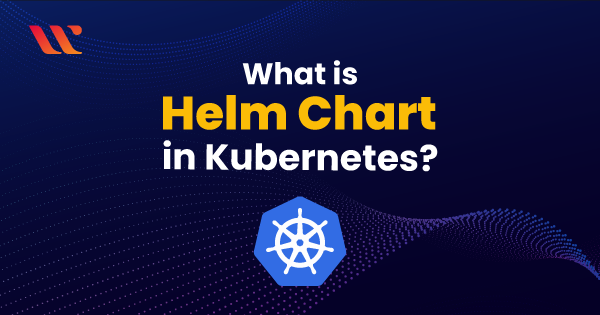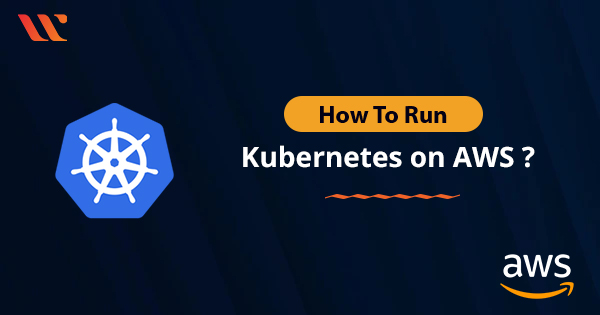The rise in the adoption of cloud-native platforms by the tech industry has given rise to Kubernetes as a de facto container orchestration platform. This is because the cloud-native platform employs micro-service architecture to deploy small, independent software units that typically run in containers.
With the increase in the usage of containers and container orchestration tools like Kubernetes, the demand for skilled Kubernetes application developers and administrators is growing continuously, and going after the best Kubernetes certification makes perfect sense to stay competitive in the job market.
In this article, we will look at all Kubernetes certification paths for engineers and developers to help them choose the right Kubernetes certification.
Kubernetes Certification
All the Kubernetes certifications offered by CNCF are standard for container orchestration skills and are well recognized by the tech industry. Having the right Kubernetes certification assures hiring managers of your expertise and experience in container orchestration skills.
Although Kubernetes certification cost is on the higher side, it is rewarding to go after it. In the next section, We will go through each certification and the motivation for different types of Kubernetes certification to assist you in opting for the best Kubernetes certification.
CNCF in association with the Linux foundation offers the following five Kubernetes certifications.
- Kubernetes and Cloud Native Associate [KCNA] Certification
- Certified Kubernetes Application Developer [CKAD] Certification
- Certified Kubernetes Administrator [CKA] Certification
- Certified Kubernetes Security Specialist [CKS] Certification
- Kubernetes and Cloud Native Security Associate (KCSA) Certification
1. Kubernetes and Cloud Native Associate (KCNA) Certification
The Kubernetes and Cloud Native associate (KCNA) certification acts as an entry-level foundational skill covering the Kubernetes and cloud-native ecosystem.
This certification is mainly for students and IT managers who want to showcase their foundational Kubernetes skills and basic understanding of cloud-native ecosystems.
Moreover, Having KCNA certified sets the stage for further Kubernetes certifications like CKA, CKAD, and CKS.
- Format: Online, proctored, multiple choice questions.
- Cost: $250
- Number of questions: 60
- Time: 90 minutes
- Pass percentage: 75%
- Free retake: 1
2. Certified Kubernetes Application Developer (CKAD) Certification
If you are a developer or an engineer who focuses more on cloud-native microservice application development and deployment, CKAD certification is suited for you.
The CKAD certification ensures the candidate has the requisite skills to design, build, and deploy any application or in general cloud-native applications in the Kubernetes environment.
- Format: Online, proctored, and performance-based hands-on task.
- Cost: $395
- Number of questions: 15-17
- Time: 120 minutes
- Pass percentage: 66%
- Free retake: 1
3. Certified Kubernetes Administrator (CKA) Certification
The most sought-after Kubernetes certification in the tech industry is Certified Kubernetes Administrator(CKA). This certification is for sysadmins or DevOps engineers who focus more on building and managing the Kubernetes cluster/environment daily.
Having certified in CKA ensures that, you have the right skill to set up, manage, and troubleshoot Kubernetes clusters.
- Format: Online, proctored, and performance-based hands-on task.
- Cost: $395
- Number of questions: 15-17
- Time: 120 minutes
- Pass percentage: 66%
- Free retake: 1
4. Certified Kubernetes Security Specialist (CKS) Certification
The container’s security is an important aspect of the cloud-native ecosystem. The CKS certification is targeted at security specialists and DevSecOps engineers who want to showcase their knowledge and skills on security best practices on container-based applications and the Kubernetes platform.
Moreover, the Certified Kubernetes Security certification stresses the candidate’s competency in system hardening, reducing microservice vulnerabilities, monitoring, and logging.
- Format: Online, proctored, and performance-based hands-on task.
- Cost: $395
- Number of questions: 15-17
- Time: 120 minutes
- Prerequisite: CKA certification
- Pass percentage: 67%
- Free retake: 1
5. Kubernetes and Cloud Native Security Associate (KCSA) Certification
The KCSA is a professional-level certification tailored for candidates who are interested in advancing their skills via a demonstrated understanding of basic knowledge and skills of security technologies in the cloud-based ecosystem.
- Format: Online, proctored, and performance-based hands-on task.
- Cost: $250
- Validity: 2 Years
- Time: 90 minutes
- Prerequisite: No Prerequisites
- Pass percentage: 75%
- Free retake: 1
Is the Kubernetes Certification Worth it?
The Kubernetes certification is challenging and after investing money and a considerable amount of time to get certified on Kubernetes, one question arises – Is the Kubernetes certification worth it?
The answer is ‘yes’ for a various of reasons. First of all the format of Kubernetes certification is a hands-on lab and the hiring managers are very well aware that to pass any Kubernetes exam, candidates must possess skills and knowledge in this field.
The Kubernetes certification will make your resume good and help you get through the initial HR screening and most likely get an interview call.
The second most intriguing factor in getting certified in Kubernetes is the job prospects. The tech industry is embracing Kubernetes as a preferred container orchestration platform more than ever due to the changes in deployment patterns of applications from monolithic to cloud-native systems.
The Kube Careers, a job portal that exclusively publishes Kubernetes jobs also posts monthly job trends for the US market. The materials in those posts have enough assurances for you to get certified in Kubernetes.
CKA vs CKAD
The certification in CKA and CKAD are not mutually exclusive but they do complement each other. It is unfair to compare CKA vs CKAD.
Although, you can choose which one to get certified first, depends upon your role in the industry – but to stay ahead in the job market consider getting certified in both CKA and CKAD.
If you get through any one of them, getting certified in the second one will be easier since the curriculum of both CKA and CKAD have a sizeable number of overlapping topics.
Conclusion
This post covered in detail about all the Kubernetes certifications offered by CNCF and the motivating elements to choose the right Kubernetes certification.
Analyze your current skill sets and roles while choosing any one of the above-mentioned Kubernetes certifications. Moreover, the certification should also match the ambition and aim of your career.
- 7 Pro Tips for Managing and Reducing Datadog Costs - June 24, 2024
- Become an NVIDIA Certified Associate in Generative AI and LLMs - June 12, 2024
- What is Azure Data Factory? - June 5, 2024
- An Introduction to Databricks Apache Spark - May 24, 2024
- What is Microsoft Fabric? - May 16, 2024
- Which Kubernetes Certification is Right for You? - April 10, 2024
- Top 5 Topics to Prepare for the CKA Certification Exam - April 8, 2024
- 7 Databricks Certifications: Which One Should I Choose? - April 8, 2024



